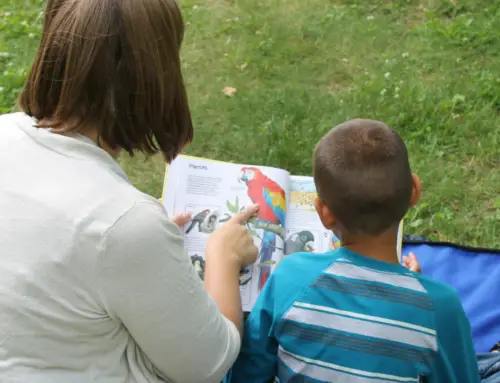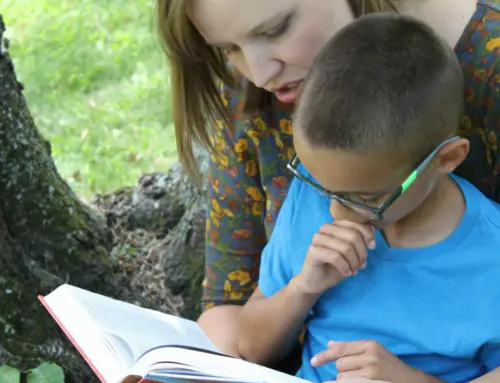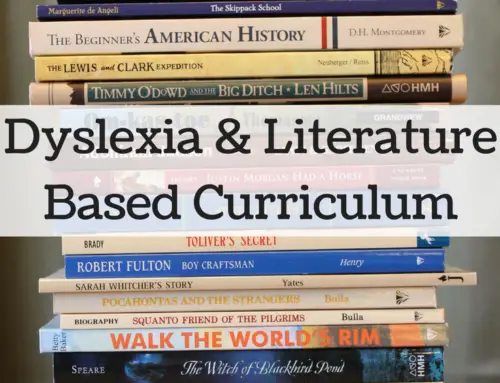Is your child claiming they hate homeschooling? Do you feel like you’re fighting tooth and nail with them on every assignment? Are the constantly crabby and complaining about doing school?
If you answered yes to any or all of these, let me start by saying we all have bad days. I think all children go through times like this. If it makes you feel any better, it’s not only true for kids who are homeschooling. Public school kids have been known to not want to go to school too.

That being said, I feel it’s still important to get to the root of the problem. If your child’s attitudes about homeschooling are more than just a bad day, it’s time to take a good look at your homeschool. Maybe there’s some things that need to be changed. We don’t expect our kids to always love everything about homeschooling, but we do want it to be an overall positive experience for all involved. Below you’ll find a few areas you might want to reevaluate about your homeschool.
Are You Teaching to Their Learning Style?
Children have different learning styles. Some learn better through visual lessons, others learn better by hearing the material. Then there are the ones that need to be more hands on. Take some time to determine your child’s learning style. Does your curriculum match their learning style? If not, you might need to look at either adapting your curriculum or making a switch.
You don’t need to go out and purchase different types of curriculum to see what styles work best with your child. Just pay attention to their behavior during the day. How do they do in read aloud time? Do this sit attentively and easily comprehend what you’re reading? If so, they might be an auditory learner. Do they need to fidget or keep their hands busy during read aloud time? If so you might have a kinesthetic learner and they would do well with hands on activities. Do they need to look at the book with you following along, looking at pictures? If that’s the case I would research visual learners.
If you think learning style might be the problem in your homeschool, I highly recommend 102 Top Picks for Homeschool Curriculum by Cathy Duffy. Cathy does an excellent job of breaking down the different learning types, and then lists out curriculum options that correspond with each learning style.
Remember, one of the best things about homeschooling is flexibility. Be willing to adapt how you teach to their learning styles.
Study Topics That Interest Them
When it comes to subjects like art, science, history, music are you focusing on the areas that interest your children? Ask for their input in these areas. What time period of history do they want to study? Is there a certain type of art they prefer? Allowing your children to help decide what you will be studying in these subjects will do two things.
First, it will give your child a feeling of empowerment when it comes to school. It gives them a say, and tells them that their opinion is important. Knowing that they are studying subjects that were their choice will probably mean they’re more willing to do the other subjects they have to do like spelling. It doesn’t mean they’ll suddenly like spelling too, but their overall attitude with school will be better which will spill over into the subjects they don’t like.
Second, they will enjoy it more! If you’re teaching a subject matter your child has chosen to study, they’ll likely be more engaged and excited to learn. It will help make homeschooling more enjoyable for everyone.
Shorten the Lessons
This is especially true if your child has learning disabilities like Grasshopper. He is both dyslexic and has ADHD. I’ve learned that to help him keep a positive attitude about school, I need to keep the lessons short. Don’t drag your lessons out to the point where your child is getting frustrated. End your lessons on a positive note when your child has had success. Don’t keep pushing until they’ve had enough. This only leaves a negative taste in the mouth for the next day.
Remember they are still kids. Don’t be too demanding on them.
Give Short Breaks
This goes along with using shorter lessons. I suggest doing a couple classes than give your kids a short break. Allowing for a break gives them time to give their brain a break. If they just got done with a subject that is difficult for them, don’t jump into the next difficult thing. Give them time to go play. It doesn’t have to be long, I usually allow for a 15 minute break.
Offering breaks can also provide some motivation. I don’t provide a break after every class. If Grasshopper asks for a break but he just had one and we need to get another class or two in before another break, I’ll simply say we need to get reading class done first. Since he knows he has a break after completing the class, he will generally keep a pretty positive attitude through the lesson.
Take a Day Off From Homeschooling
Sometimes, our kids are just burned out. We feel it as parents often, why do we just assume burn out doesn’t happen for our kids? Take a day off from school and get out to do something fun. Hint, it doesn’t mean the day has to be free from learning, take a field trip! Go to a museum or nature center and let your kids explore. Just remember, it is a day off from homeschooling. If you do this, don’t ask them to do an assignment on the field trip.
As you’re going about your day off activity take some time to connect with your kids. Ask them questions to build your relationship. You might even ask them if there is something about school they want to change, or what would make them enjoy it more.
Pray
Ok, this should really be at the top of the list. Ask God for help, He wants to help, and wants you to succeed. Let Him help you. Homeschooling can be difficult, talk to God about it.







The first year we battled back and forth over being homeschooled, we were both bored. So each Friday we would go on a field trip providing he did well the rest of the week. As little as a bus ride or a trip to the park where you could hang upside down from a swing and get a different view of the neighborhood bugs. Make book reading an adventure and play a lot of learning games on the computer when the weather is bad. He is learning and I have my wild imagination back!
I like the idea of weekly field trips! I’m glad you found a system enjoyable for both of you!
I have found that sometimes it is something in particular that is irking them. We have taken out subjects or activities that are bothersome and tried to get back to things they love. Then We reevaluate the “not loves” to see if we can learn or cover these things in a way that is more engaging for them, or decide they just have to suck it up and do those things.
sounds like a great strategy Heidi
These are great tips. As a former public school teacher, these were things I wanted to do more of with my kiddos-interest based learning. However, I was tied to only district approved curriculum. I left because it didn’t feel right. Now I lI use natural learning approach with my own children.
that’s awesome Melissa! Thanks for sharing 🙂
This year we started with an interview with each child and asked them what they liked and disliked from last year. Wow, was I surprised. It has made a world of difference.
I did that too at the end of last year so I could prepare for this year
It is so important to teach to their learning style. I wasted too much time teaching to someone else’s.
This has been very helpful. Thank You.
There is a Typo in the title:
Are You Teaching to Their Leaning Style?
thanks! I’ll fix it 😉
I’ve been sitting down with my older kids and having them help choose some of their curriculum and their learning topics. It’s really helped their attitudes! And with my younger ones, I try to sit with them and let them share their opinions with me. Sometimes they just need to feel like they are being heard.
Absolutely Lexi, glad that has helped!